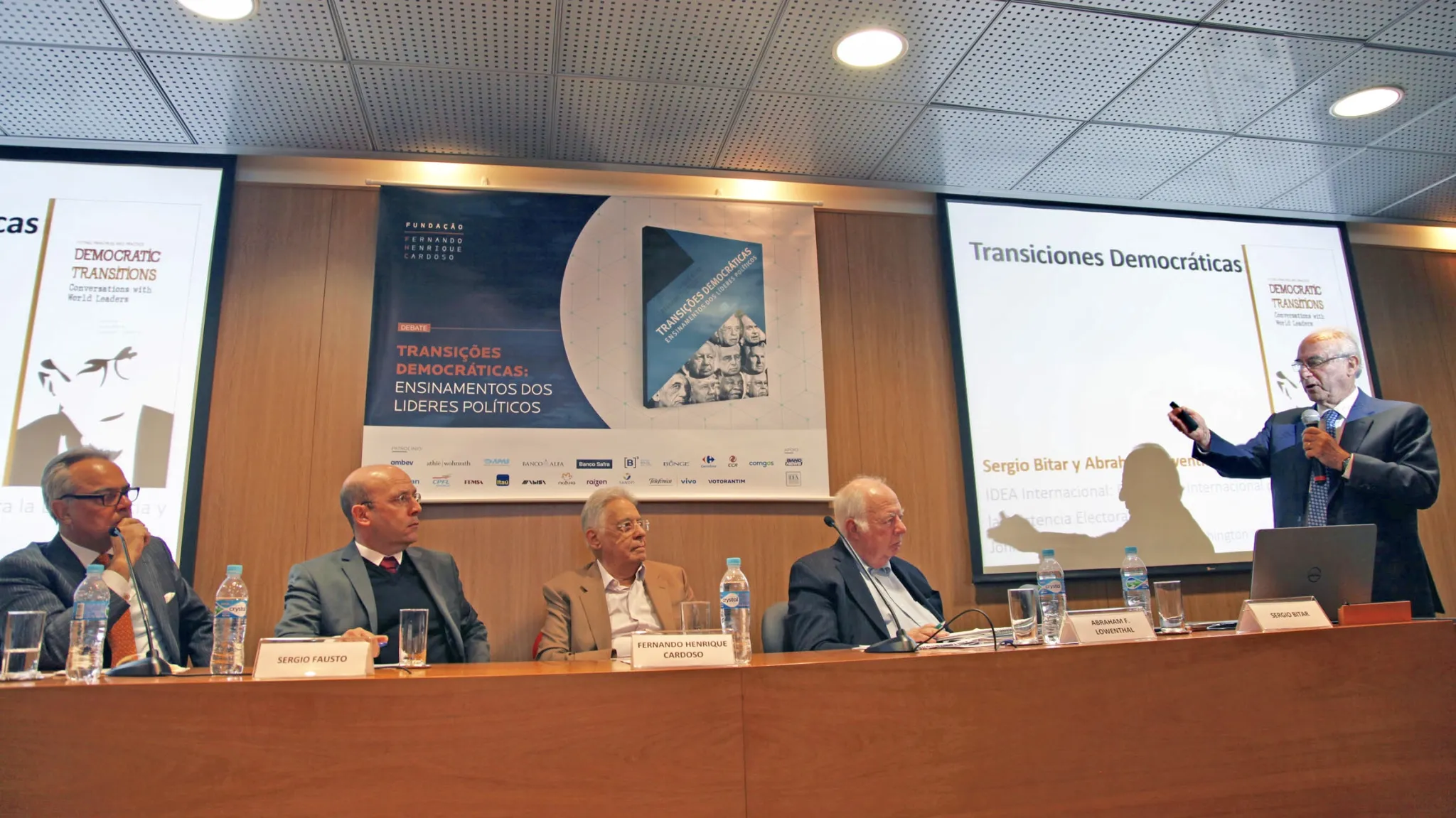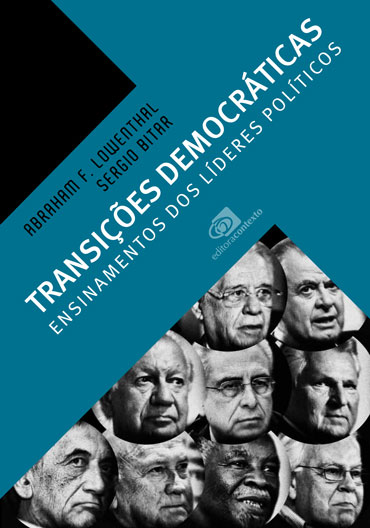
On August 15 the Portuguese edition of Democratic Transitions: Conversations with World Leaders was launched at an event organized by the Fernando Henrique Cardoso Foundation (FFHC) and IDEA International, in the city of Sao Paulo, Brazil.
SAO PAULO - The book, which includes long and detailed interviews with former presidents and prime ministers who led democratic transitions processes in nine countries during the final decades of the twentieth century, was presented by editors Abraham Lowenthal and Sergio Bitar (member of the board of advisers of International IDEA) and counted with remarks from former president Fernando Henrique Cardoso; the Executive Secretary of the FFHC, Sergio Fausto; and Dr. Daniel Zovatto, Regional Director for Latin America and the Caribbean of International IDEA.

Dr. Zovatto introduced the activity highlighting the relevance of the book in the current context of growing democratic fatigue experienced in Latin America, just 40 years after the beginning of the third democratic wave. In addition, this year the super electoral cycle in the region finishes, making this time the precise moment to reflect on past experiences and use them as lessons for the future.
Sergio Bitar presented the 10 conclusions that emerged from interviews with leaders like Patricio Aylwin and Ricardo Lagos from Chile, Fernando Henrique Cardoso from Brazil, Thabo Mbeki from South Africa, Felipe González from Spain, among others. He explained that the analysis of these lessons is essential to face the democratic regressions that are occurring globally.
Professor Lowenthal, for his part, highlighted the importance of the book because of its practical approach, which can serve as input and continue to create and strengthen habits and behaviors that support democratic governance. The professor referred specifically to the last 30 years of weakening the American political system has experienced, unleashing a severe crisis of confidence. The inability of democratic institutions so integrate social problems through adequate policies has not only been evident in the United States, but in every region of the world.
President Fernando Henrique Cardoso, in addition to commenting on the experience of Brazil, emphasized the need to maintain a balance between courage and conciliation in the processes of democratic transition. The former president stressed the importance of promoting responses within the system and allowing political processes to develop.
It is important to highlight that throughout the presentations, the current situation of Venezuela and the potential of the lessons presented in the book to move towards a peaceful solution to the crisis experienced by that country were mentioned transversely.
This event is part of a long trajectory of cooperation between the Office for Latin America and the Caribbean of IDEA International with the Fernando Henrique Cardoso Foundation, an organization that seeks to promote public debate and the dissemination of knowledge about democracy and development in Brazil.



